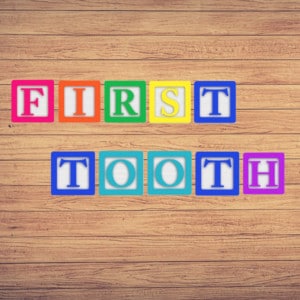Kids Dentist Near Me
 The negative effects of poor oral hygiene are well documented, and can impact much more than your mouth. A lot of serious medical conditions can be caused or worsened by complications arising for poor oral health. Starting your child’s oral care off right serves the twofold benefit of modeling the importance of good oral hygiene to them and giving their mouth a solid foundation of oral health. If you want to ensure your child’s oral health is taken care of, contact our pediatric dental team today to schedule your child’s next examination and cleaning!
The negative effects of poor oral hygiene are well documented, and can impact much more than your mouth. A lot of serious medical conditions can be caused or worsened by complications arising for poor oral health. Starting your child’s oral care off right serves the twofold benefit of modeling the importance of good oral hygiene to them and giving their mouth a solid foundation of oral health. If you want to ensure your child’s oral health is taken care of, contact our pediatric dental team today to schedule your child’s next examination and cleaning!
The Dangers of Poor Oral Health
Poor oral health can result in much more than cavities and toothaches. Studies have linked a long list of serious and life-threatening conditions to poor oral hygiene, including heart disease, dementia, stroke, respiratory issues, an increased risk of miscarriage, and more. Most of these conditions are worsened by the bacteria that can enter your blood stream due to gum disease or tooth decay. These issues take time to develop and time to treat. However, the sooner you start practicing good oral health, the better defense your mouth with have against disease, protecting your whole body.
Care for All Ages
Everyone experience different oral care needs throughout their childhood. From the teething stage as baby teeth start to appear to loss of teeth as adult ones begin to take their place, there are a lot of different stages a child’s mouth will go through before it’s fully developed. It’s important to recognize that each of these stages requires their own unique oral care. Waiting to teach your child good oral hygiene could be disastrous for their health.
Invest in your child’s future health by starting off their oral care routine off well. Contact our pediatric dental team today to learn more about the potentially life-saving benefits of early childhood dental care or to schedule your child’s next examination and cleaning.


 Calcium is an important mineral for building strong, healthy teeth. Not everyone can tolerate the lactose found in dairy, which is often a prime source for calcium. There are a wide variety of options available to get the calcium you need. Here are six options rich in calcium:
Calcium is an important mineral for building strong, healthy teeth. Not everyone can tolerate the lactose found in dairy, which is often a prime source for calcium. There are a wide variety of options available to get the calcium you need. Here are six options rich in calcium: Calcium is an important mineral for building strong, healthy teeth. Not everyone can tolerate the lactose found in dairy, which is often a prime source for calcium. There are a wide variety of options available to get the calcium you need. Here are six options rich in calcium:
Calcium is an important mineral for building strong, healthy teeth. Not everyone can tolerate the lactose found in dairy, which is often a prime source for calcium. There are a wide variety of options available to get the calcium you need. Here are six options rich in calcium: Getting your child to visit the dentist willingly is a difficult task that many parents face. Having your child be excited about a dental appointment is even more of a challenge. Here are tips to help your child feel excited about their next dental visit.
Getting your child to visit the dentist willingly is a difficult task that many parents face. Having your child be excited about a dental appointment is even more of a challenge. Here are tips to help your child feel excited about their next dental visit. Do your children constantly ask for sugary snacks that you know are not good for their health? There are healthy alternatives to the junk food your child loves that taste just as great. Here are a few options to get you started.
Do your children constantly ask for sugary snacks that you know are not good for their health? There are healthy alternatives to the junk food your child loves that taste just as great. Here are a few options to get you started. Do you have white spots on your teeth? Are your teeth quite sensitive? Do your teeth have cracks, chips, or indentations? If yes, then you may be experiencing enamel erosion.
Do you have white spots on your teeth? Are your teeth quite sensitive? Do your teeth have cracks, chips, or indentations? If yes, then you may be experiencing enamel erosion. Probiotics are typically advertised as being helpful for digestion. However, studies have shown that they can also improve oral health. Probiotics are beneficial for fighting infections that lead to oral disease.
Probiotics are typically advertised as being helpful for digestion. However, studies have shown that they can also improve oral health. Probiotics are beneficial for fighting infections that lead to oral disease. According to the National Children’s Oral Health Foundation, childhood tooth decay is the number one chronic illness impacting children in America. More than 40 percent of children have decay by the time they reach kindergarten. Tooth decay can have a lasting impact on the health of a child, especially if dental care is not provided to them at a young age. The following are some of the risk factors that can lead to tooth decay during childhood.
According to the National Children’s Oral Health Foundation, childhood tooth decay is the number one chronic illness impacting children in America. More than 40 percent of children have decay by the time they reach kindergarten. Tooth decay can have a lasting impact on the health of a child, especially if dental care is not provided to them at a young age. The following are some of the risk factors that can lead to tooth decay during childhood. During pregnancy, it is essential that you don’t neglect your oral health. A fluctuation in hormones can cause drastic changes in your mouth. Oral health complications have been linked to increased risk in other significant overall health issues. Here are the most common oral health problems, how they can affect your pregnancy, and how to prevent them.
During pregnancy, it is essential that you don’t neglect your oral health. A fluctuation in hormones can cause drastic changes in your mouth. Oral health complications have been linked to increased risk in other significant overall health issues. Here are the most common oral health problems, how they can affect your pregnancy, and how to prevent them. The U.S. Centers for Disease Control and Prevention have found that tooth decay is the single largest ailment impacting children. In fact, tooth decay is more widespread than illnesses such as asthma. As a parent, you can help establish habits that will lead to a lifetime of optimal oral health for your child. Essential oral health care practices start during infancy. Don’t wait for your child’s teeth to begin erupting before considering their oral health.
The U.S. Centers for Disease Control and Prevention have found that tooth decay is the single largest ailment impacting children. In fact, tooth decay is more widespread than illnesses such as asthma. As a parent, you can help establish habits that will lead to a lifetime of optimal oral health for your child. Essential oral health care practices start during infancy. Don’t wait for your child’s teeth to begin erupting before considering their oral health.